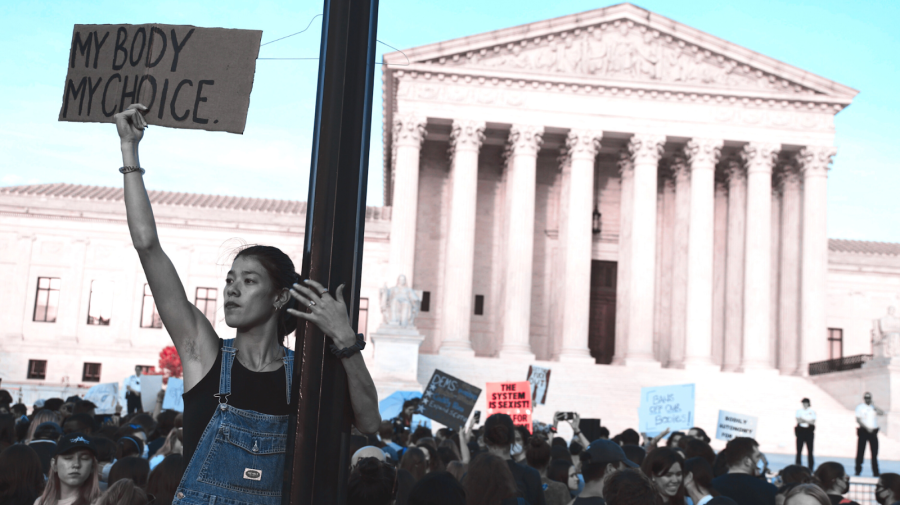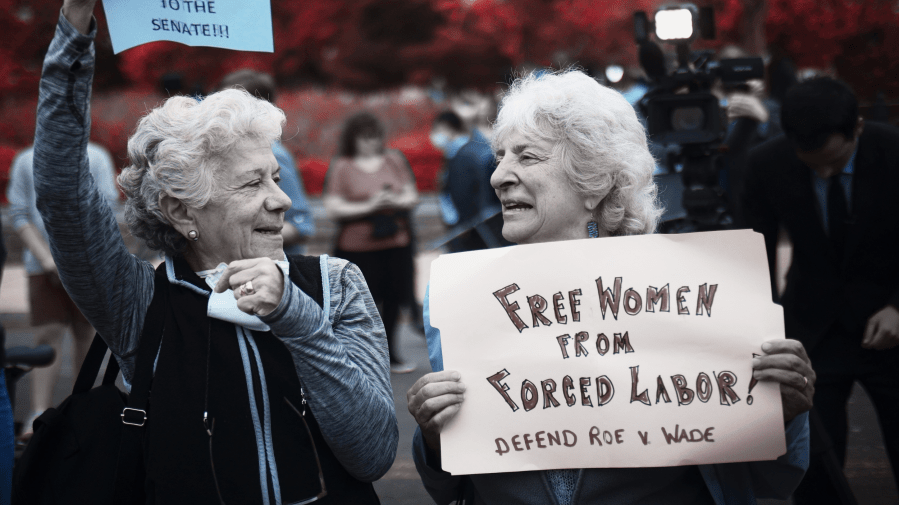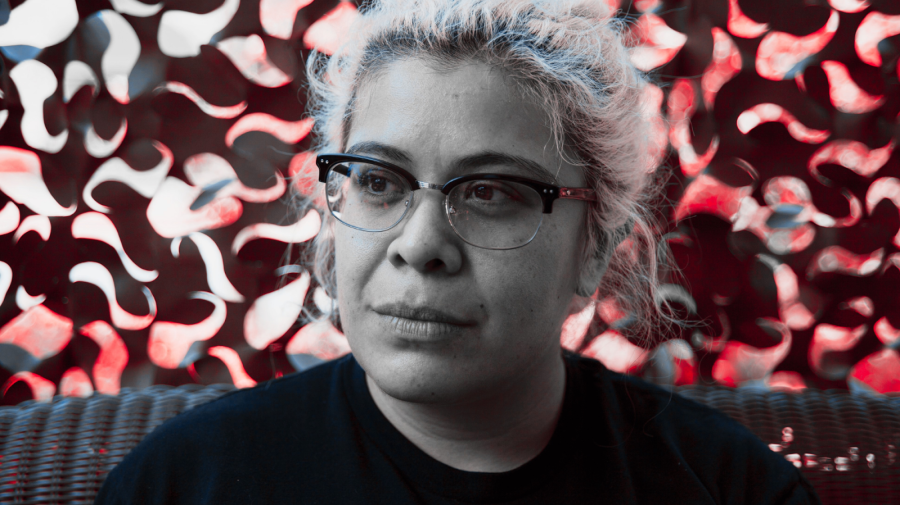
On June 24, 2022, the Supreme Court of the United States (SCOTUS) overturned Roe v. Wade. The Supreme Court’s reversal had been anticipated for weeks after Justice Samuel Alito’s leaked draft opinion on Dobbs v. Jackson made headlines. At the time of the leak, you may have donated to abortion funds and found ways to support those who’d be impacted most. Now, it’s time to lend support again.
The Supreme Court Overturns Roe v. Wade
Since 1973, the decision made in Roe v. Wade provided federal, constitutional protection for a person’s right to have an abortion. SCOTUS, however, undid decades of legal precedent. For many reasons, the late Justice Ruth Bader Ginsburg’s passing in September 2020 signaled a shift in the court; the former president, Donald Trump, appointed his third Supreme Court Justice, for instance.
Given the Supreme Court’s unequivocally conservative majority, many Americans voiced concern about the future of federally protected abortion access. While on the campaign trail, now-President Joe Biden even promised to codify the Roe v. Wade decision into law. Now, with the Supreme Court’s 6–3 decision coming to pass, Americans are facing a new reality.

But the discussion around abortion access hasn’t just been happening at a federal level. To be clear, overturning Roe means abortion access is no longer legally protected on the federal level. While this SCOTUS reversal doesn’t ban safe and legal abortion access on the federal level, it has certainly opened the doors for such bans in many, many states across the country.
According to the Guttmacher Institute, 22 states have laws or constitutional amendments already in place — some are pre-Roe laws and others are newly passed — that ban abortion without Roe in place. Four others — Florida, Indiana, Montana and Nebraska — are likely to ban abortions now that there aren’t federal protections in place. Even before Roe was overturned, some states have found ways to complicate and restrict abortion access. For example, Texas, in passing its six-week abortion ban, has created a model for other states, like Alabama and Mississippi, to follow.
Robin Marty, the operations director for the West Alabama Women’s Center in Tuscaloosa, says that overturning Roe means the end of legal abortion, because people “will still seek ways to end pregnancies.” For folks living in rural areas, or in states bordered by others with restricted access, traveling to seek healthcare services could become even more challenging. Not to mention, some states are pushing to make providing an abortion a felony offense, and considering banning medications that induce abortions.
All of this to say, people who are pregnant, or who could become pregnant, are facing real obstacles when it comes to accessing necessary healthcare services. For some, the difficulty is looming, while, for others, it’s already a reality that may worsen.
How to Lend Support to Those Who Need It Most
When life-altering events happen, many of us feel the urge to do something. Maybe you recently supported Ukrainian refugees, or aided trans youth and their families. There are many meaningful ways to lend support: protesting in person, contacting lawmakers, spreading information and resources online, for example. Sometimes, though, one of the best ways to lend a hand is by supporting organizations and individuals doing on-the-ground, grassroots work.

We’ve already mentioned how “75% of people who have abortions are classified as either poor or low-income, according to data from 2014.” We’ve also written about how people of color are disproportionately affected, and have a much higher share of abortions than of rest of the population at large. And, for trans and nonbinary folks, just being part of the conversation — let alone having access to (inclusive) abortion services — is rare.
Even if you’re thousands of miles away, you can help others who are living through the consequences of these history-making decisions. Maybe you’re a so-called “rage donor” — someone who has the reactionary urge to donate, to take action. If so, it’s important to really consider where, and to whom, you’re lending support.
Mutual Aid, Abortion Funds & Reproductive Justice Organizations That Need Your Support the Most
While supporting your local Planned Parenthood center or American Civil Liberties Union (ACLU) chapter is crucial, those big-name organizations are often the ones who see a large influx of “rage donors”.
Instead, consider supporting organizations and abortion funds that center Black people, Indigenous people, people of color, trans and nonbinary people, low-income people, people living in rural areas, undocumented people and survivors of sexual assault. After all, abortion services are healthcare — and there are many other healthcare inequities that impact folks’ healthcare access in the U.S.
- National Abortion Access Fund for Survivors, GoFundMe: Supports survivors of gender-based violence by covering the costs associated with accessing safe abortion services.
- Yellowhammer Fund: A reproductive justice organization and abortion fund that serves people living in Alabama and the Deep South, including Mississippi and Florida.
- Indigenous Women Rising: Supports Indigenous and Native Peoples’ access to equitable and culturally safe healthcare by providing education and resources as well as promoting advocacy.
- The SisterSong Women of Color Reproductive Justice Collective (or SisterSong): In addition to aiding with abortion access, this collective aims to “strengthen and amplify the collective voices of Indigenous women and women of color to achieve reproductive justice by eradicating reproductive oppression and securing human rights.”
- Access Reproductive Care (ARC) — Southeast: Whether someone needs funding or logistical support when it comes to having an abortion, ARC supports Southerners in Alabama, Florida, Georgia, Mississippi, South Carolina and Tennessee.
- National Asian Pacific American Women’s Forum (NAPAWF): In addition to aiding with abortion access, NAPAWF “works to build a movement for social, political and structural change for Asian American and Pacific Islander (AAPI) women and girls.”
- Magic City Acceptance Center: This Alabama-based organization helps trans and nonbinary people access safe abortion services.
- Mariposa Fund: Based in Albuquerque, New Mexico, Mariposa Fund aims to help undocumented people who are trying to obtain reproductive healthcare. Undocumented people often face additional obstacles, ranging from a lack of insurance to linguistic barriers and a fear of criminalization.
- New York Abortion Access Fund (NYAAF): If you live in New York, or travel to the state, NYAAF provides financial assistance and other resources to folks who can’t cover the costs of an abortion.
- West Fund: A Texas-based organization that not only helps cover abortion costs, but fights for reproductive justice in all forms by engaging in community issues ranging from gentrification to sex education and immigration. Other Texas-based funds include: Fund Texas Choice, Texas Equal Access Fund and Support Your Sistah.
- Abortion Fund of Arizona: This organization aims to help people who face the greatest barriers receive access to safe and legal abortions.
- Richmond Reproductive Freedom Project: A Virginia-based and volunteer-run grassroots abortion fund.
- Cobalt Abortion Fund: This Colorado-based fund helps all people access abortions by helping to defray any associated costs.
- The Chicago Abortion Fund (CAF): This fund, which “boldly affirms a person’s right to bodily autonomy,” provides not just financial assistance but logistical and emotional support to people seeking abortion care in Chicago, the state of Illinois and the greater Midwest.

Having trouble locating grassroots efforts in a state you’re concerned about? Consider using these resources and aiding their efforts:
- National Network of Abortion Funds: By donating here, you’ll split your gift between more than 80 abortion funds, ensuring people can afford safe abortions.
- National Abortion Federation Hotline Fund: NAF operates the largest national, toll-free, multilingual hotline for abortion referrals and financial assistance in the U.S. and Canada.
Of course, this isn’t an exhaustive list of funds and organizations. In addition to using the resources provided by the National Network of Abortion Funds, find other means of aiding your community — or other, specific communities that could really benefit from your support. And don’t forget to maximize your efforts. For example, if you work for a company that matches donations, check to see if they’ll match your donation to one of these specific organizations or funds.
And, yes: even though the Planned Parenthood Action Fund and the ACLU are generally well-funded — and the first places “rage donors” think of — they’re also, in some cases, the only groups some people know about, so supporting them remains vitally important.






